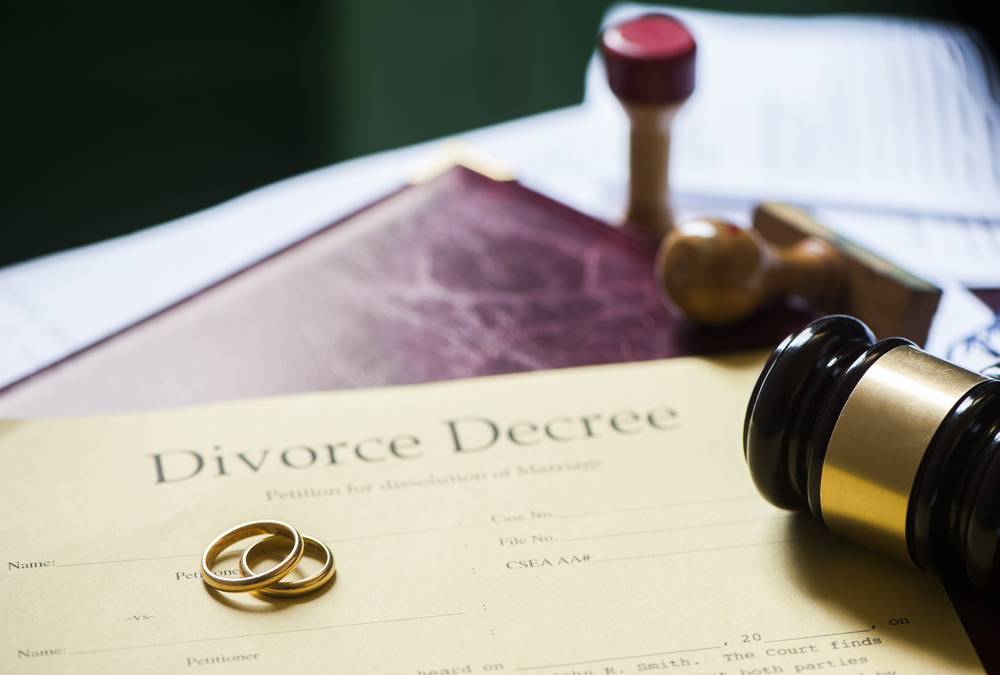DIVORCE, MAINTENANCE AND APPEALS UNDER THE HINDU MARRIAGE ACT
DIVORCE, MAINTENANCE AND APPEALS UNDER THE HINDU MARRIAGE ACT
Introduction
India is a country with a plethora of ethnicities and religions. Not surprisingly, it has developed different personal laws for communities residing therein. The Hindu Marriage Act was enacted in 1955 with the purpose of codifying and streamlining various religious specific practices that existed among Hindus, Buddhits, Jains, Sikhs and anyone domiciled in India who was not a Muslim, Christian, Parsi or Jew. It defines the conditions for a marriage, establishes the grounds for divorce, provides for maintenance and lays down the laws governing appeal to decrees and orders passed under this act.
This article aims to scrutinise mental cruelty and desertion as grounds for divorce, factors relevant for determining the amount of maintenance and the general rules applicable in appealing a decree passed under the Hindu Marriage Act.
Divorce
Section 13 (1) of the Hindu Marriage Act allows for the dissolution of marriage on the grounds of adultery, cruelty, desertion, religious conversion and insanity.
- CRUELTY
Cruelty may be mental or physical. Section 12(1)(ia) states
‘Any marriage solemnized, whether before or after the commencement of this act, may on a petition presented by either the husband or the wife, be dissolved by a decree of divorce on the ground that the other party has, after the solemnization of the marriage, treated the petitioner with cruelty.’
Cruelty is a conduct that inflicts such acute mental pain, agony and suffering that it makes it impossible for the other party to live with the other. It includes, but is not limited to abusive behaviour, humiliation, torture, allegation on the character of the spouse and undergoing a vasectomy or such procedures without the consent of spouse. It necessitates wilful cruel treatment of the party in a manner rendering continued living together of the spouses harmful and injurious.
Mere coldness or lack of affection, trivial irritations, quarrels, normal wear and tear of the married life cannot be adequate to invoke the grounds of mental cruelty. Similarly, mere outings and meetings with the opposite gender cannot be reasonably placed under acts of mental cruelty by inferring adulterous relationships from the same. On the contrary, such uncorroborated and untruthful allegations of infidelity themselves serve as acts of cruelty.
In Vishal singh v. Priya and Anr., the husband alleged his newly wedded wife of mental cruelty through her ‘rude’ behaviour after marriage, her picking up quarrels with family members, keeping herself secluded and showing disinclination to participate in household chores. However, the court held that such conduct can, in no stretch of imagination, be described as cruel treatment. Mere trivial irritations, quarrels, normal wear and tear of the married life which happens in day to day life would not be adequate for grant of divorce on the ground of mental cruelty.
- DESERTION
Under explanation to Section 13(1), desertion is defined as the desertion of the petitioner by the other party to the marriage without reasonable cause and without the consent or against the wish of such party, and includes the wilful neglect of the petitioner by the other party to the marriage. It requires two essential elements:
- Factum deserendi – The presence of the fact of separation. This would be drawn from the facts and circumstances of the case.
- Animus deserendi– The intention to bring the cohabitation to an end. This entails the absence of consent of the spouse or the absence of conduct resulting in such a cause of action.
The mere fact that the parties were living separately is not sufficient to establish desertion. There must be a definite intention to put an end to marital obligations. In instances where the wife is maltreated by the husband and lives in a non congenial environment, desertion cannot be inferred from the mere fact that she left the husband’s house. Desertion is a total repudiation of marital obligations and cannot include trivial matters.
Maintenance
A wife is eligible to claim maintenance post divorce as well as during the divorce proceedings in order to meet her financial expenditure on basic amenities. A husband may fulfil these obligations either in the form of a lump sum amount or in the form of a fixed monthly amount.Section 25 of the Hindu Marriage Act states that
‘If an application is made to the court by either the husband or the wife, the respondent shall pay to the applicant for maintenance and support such gross sum or such monthly or periodical sum for a term not extending the life of the applicant and having regards to the respondent’s own income and other property and income and other property of the applicant, it may seem to the court to be just and any such payment may be secured, if necessary, by a charge on the immovable property of the respondent.’
However, this maintenance amount awarded must be reasonable and realistic. Albeit the cort should ensure that it’s not exorbitant and unbearable on the husband, it should not be too meagre that it drives the wife to penury.
Maintenance should be calculated on the basis of status of the parties, reasonable wants of the claimant, income and property of the claimant, number of persons he/she has to maintain, amount that suffices the applicant to live in a similar lifestyle as he/she enjoyed in the matrimonial home, non-applicant’s liability, provisions for food, clothing, shelter, education, medical attendance and treatment etc. of the applicant, Payment capacity of the non-applicant.
In Vejendla Sugunamma and Ors. vs. Vejendla Irmeiah and Ors. (15.04.2021 – APHC) : MANU/AP/0453/2021, where the wife did not know any skill and specialised work to earn her livelihood and was given the custody of her daughter, the court fixed the amount of maintenance to be Rs. 8000 per month each. However, the maintenance for the daughter was only until she got married/employed.
In Jaiveer Singh vs. Sunita Chaudhary (05.04.2021 – DELHC) : MANU/DE/0621/2021, the wife was unable to sustain herself and needed maintenance from her husband. Looking at the financial state of the husband, the court ordered the amount of maintenance to be fixed at Rs. 17,000/- per month.
In Neelam vs. Yashpal (08.03.2021 – DELHC) : MANU/DE/0493/2021, despite their own earning of Rs. 2000 per month, the party was entitled to permanent maintenance of Rs. 1,16,000/-, keeping in view the increasing prices of essential goods.
Appeal to a decree of divorce
An appeal to a decree of divorce should be made within the limitation period. Limitation period refers to a time period within which a legal action can be brought about by a party. It begins when the cause of action arises.
The limitation period for appealing against a decree under the Hindu Marriage Act was extended from thirty days to ninety days by Act 50 of 2003. This was pursuant to various judgements by courts that pointed out that the time period of 30 days prescribed for filing the appeal are insufficient and inadequate, considering the potential distance, geographical conditions, the financial position of the parties and therefore, a minimum period of 90 days may be prescribed for filing the appeal against any judgment and decree under the Act and any marriage solemnised during the aforesaid period be deemed to be void.
Conclusion
Therefore, it is evident that Indian Legal system acknowledges and upholds the sanctity of marriage by setting up a high threshold for establishing cruelty and desertion. Further, it also allows for a reasonable amount of maintenance to be granted to either party in cases where he/she is not able to maintain him/herself. Lastly it provides a 90 months period of limitation to parties for challenging decrees of divorce. The very objective of setting up such a period is that a party cannot ‘sleep over their rights’.Therefore, it is only prudent to initiate legal actions as soon as the cause of action arises.
Written by – Jhanvi Shah
Edited By – Aaditya Bhatt Advocate, Chandni Joshi Advocate









